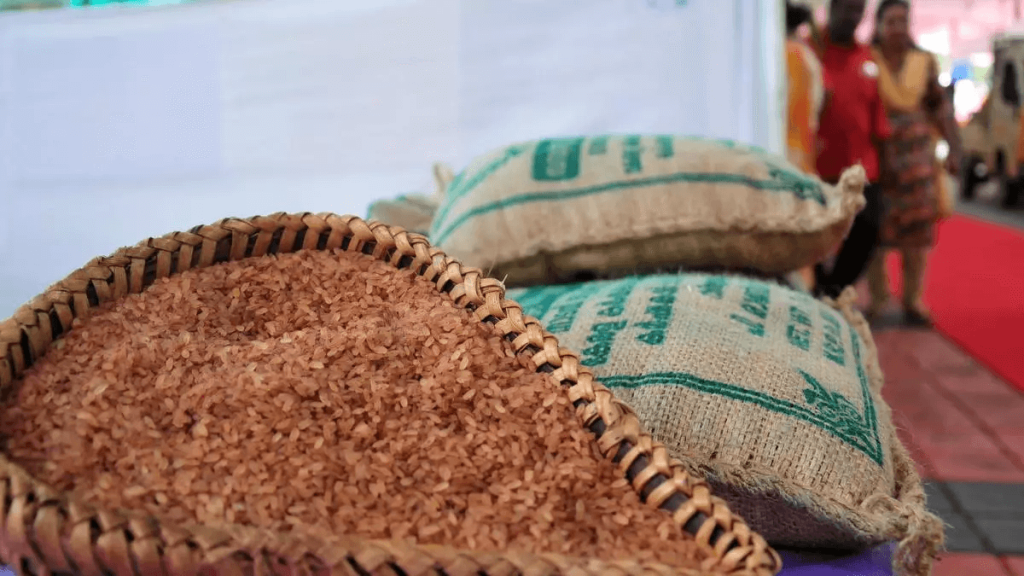Tags
Organic rice exports: sift grain from chaff
Steep hike in penalties for fraud under the National Programme of Organic Products and blacklisting erring firms are the need of the hour.
By Subramani Ra Mancombu

A controversy over irregularities in the export of organic rice has brought into focus the role of the Agricultural and Processed Food Products Export Development Authority (APEDA) as the nodal agency of the National Programme of Organic Products (NPOP).
To hoodwink authorities, some unscrupulous exporters shipped out white rice as organic rice during the period when it was banned between July 2023 and September 2024. The issue came to light following businessline’s report based on data showing quite a few anomalies, including shipments to nations that cannot afford to buy organic rice.
The issue has now become humongous with other exporters affected by authorities’ action of detaining two ships, for over two months now, going to the courts. In two cases that have come up for hearing, the Gujarat High Court has ordered the arrest of merchant vessel SW South Wind I. Two exporting firms — MEIR Commodities India and Farmart — are seeking compensation totalling $1.8 million (₹15.15 crore).
The shipping firm will likely be heard in these cases soon and its argument is awaited. Experts wonder what would APEDA or the government argue if the shipping firm points fingers at them. The exporting firms have argued that their consignments were cleared by the authorities and have been held up due to other suspicious cargo(es).
What if the court orders APEDA to compensate the exporters since certification of organic exports is under its control? Experts point to a similar case in which over 500 grape growers from Maharashtra sought ₹273 crore from APEDA.
In this 2010 case — pending before the Supreme Court now — the growers argued that their shipments were rejected by the European Union after authorities cleared them. They argued that their consignments were sent as APEDA had approved them. Arguing in the Mumbai High Court, the Centre said it could only offer ₹9.63 crore. The court, however, asked the government to compensate the farmers fairly. If 8 per cent interest is added to the claim in the apex court, it could be ₹600 crore now.
These issues highlight that all is not well with the NPOP. One of the problems is lack of strong measures to penalise wilful defaulters. Penalties should be a deterrent and not a token measure.
The revised guidelines under NPOP propose to impose a penalty of ₹5 lakh for the first wilful default. This will not prevent unscrupulous elements from resorting to fraud such as shipping out white rice as organic rice.
Heavy fines in US
Experts say fraud in the organic food chain will affect humans and the NPOP fails to consider this. The demand is for heavier fines than “pecuniary” ones. For example, the US Department of Agriculture (USDA) has provisions to imprison those violating organic products norms and levy fines running into millions of dollars. In 2019, the USDA charged four persons with fraud in selling organic food.
The main accused got over 10 years of imprisonment. In a 2020 case, an individual was sentenced to 51 months imprisonment besides being asked to pay $15 million (₹126 crore).
Currently, penalties are low and a miniscule portion of the crores of rupees defaulters earn. There is also no provision to prevent a defaulter from launching another firm if the functioning company is suspended. We are witnessing this in organic rice exports.
Certification bodies must also be prosecuted if they are found conniving with the defaulter. APEDA or NAB (National Accreditation Body) can refer the issue to higher officials to go ahead with the prosecution.
Experts argue that NPOP has been notified under the Foreign Trade (Development and Regulation) Act (FTDR), which has provisions for criminal prosecution besides penalty. Under the FTDR Act, the penalty for any wilful default is five times the value of the cargo. For example, if the value of a cargo is ₹100 crore, a penalty of ₹500 crore can be imposed.
While increasing the penalty or including provisions to invoke the FTDR Act, the NPOP needs to blacklist persons whose companies commit such fraud. On October 10, APEDA Chairman Abhishek Dev said the agency is in the process of finalising the revised NPOP guidelines. He said the revised guidelines will try to ensure clarity and eliminate ambiguity, besides focusing on transparency. However, they must deter those trying to hoodwink the system through heavy penalties and criminal prosecution.
The NAB is the apex decision-making body for NPOP with APEDA providing the supporting secretariat for NAB. One of the lacunae of NAB is that its approach is based on process rather than product.
Experts say the NAB should be structured like the Food Safety and Standards Authority of India (FSSAI). The other issue with NPOP is while APEDA carries out investigations on complaints of irregularities, it also has a role in NAB’s decision against those who are at fault. This is like a police personnel turning judge. Experts are of the view that as an agency promoting exports, APEDA’s role clashes with that of being a nodal agency for NPOP. Also, APEDA is short on manpower.
The Centre should not opt for just a cosmetic change of NPOP. Rather, it needs to strengthen the organic farming and export system. It needs to bring in measures that will encourage genuine producers and exporters rather than fly-by-night operators.
Published Date: October 22, 2024







